HS-ETS1-1
Analyze a major global challenge to specify qualitative and quantitative criteria and constraints for solutions that account for societal needs and wants.
-
 Space
SpaceLet’s learn about surviving a trip to Mars
Getting to and surviving on the Red Planet will take lots of innovation.
-
 Health & Medicine
Health & MedicineTo test for COVID-19, a dog’s nose can match a nose swab
Dogs can sniff out COVID-19 cases as well as PCR tests can — and are better at ID’ing cases having no symptoms, a new study finds.
-
 Science & Society
Science & SocietySome scientists want serious research into UFOs. Here’s why
Science grapples with unknown phenomena all the time. Investigating “unidentified flying objects” shouldn't be different, researchers say.
By Liz Kruesi -
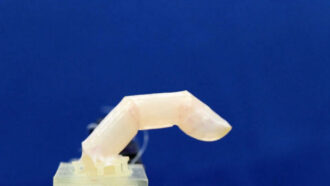 Tech
TechThis robotic finger is covered in living human skin
The advance brings super realistic cyborgs one small step closer to reality.
-
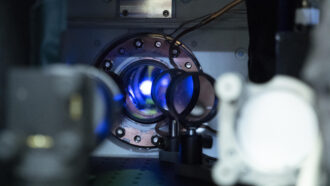 Physics
PhysicsA new clock shows how gravity warps time — even over tiny distances
This clock measured how gravity changes the passage of time in different places — even spots just one millimeter apart.
-
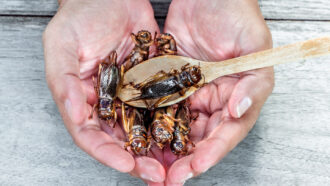 Animals
AnimalsHere’s why cricket farmers may want to go green — literally
Crickets are great sources of protein, but they often kill each other in captivity. Green light could help solve the problem, two teens find.
By Anna Gibbs -
 Tech
TechTeen-designed tech could expand access for people with disabilities
Several inventors at the 2022 Regeneron ISEF competition offered creative solutions that translate sign language and help blind people navigate.
By Anna Gibbs -
 Chemistry
ChemistryReusable plastic bottles release hundreds of pollutants into water
Data show the plastic ends up tainting drinking water. For now, scientists don’t know what health risks downing these pollutants might pose.
-
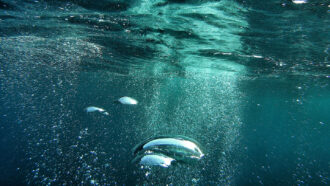 Environment
EnvironmentBubbles could help remove trash from rivers
One young engineer devised a way to make bubbles sweep away the trash floating down a creek, like the one in her backyard.
By Anna Gibbs -
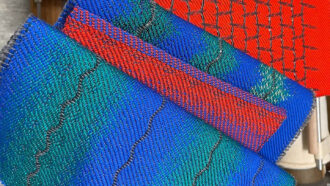 Materials Science
Materials ScienceThis new fabric can ‘hear’ sounds or broadcast them
With special fibers that convert tiny vibrations to voltages, a new fabric senses sound. Someday, such fabrics could monitor the body or aid hearing.
-
 Materials Science
Materials ScienceNew cloth cools you when you’re hot, warms you when you’re cold
Scientists 3-D printed the new fabric, which has even more tricks up its sleeve — such as conducting electricity and resisting radio waves.
-
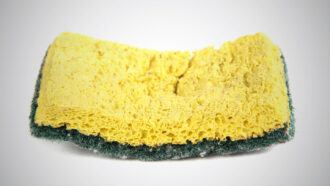 Microbes
MicrobesKitchen sponges are bacteria’s dream home
Sponges are favorite spots for bacteria, partly because of the mixed-housing environment that the cleaner-uppers offer microbes.
By Anna Gibbs